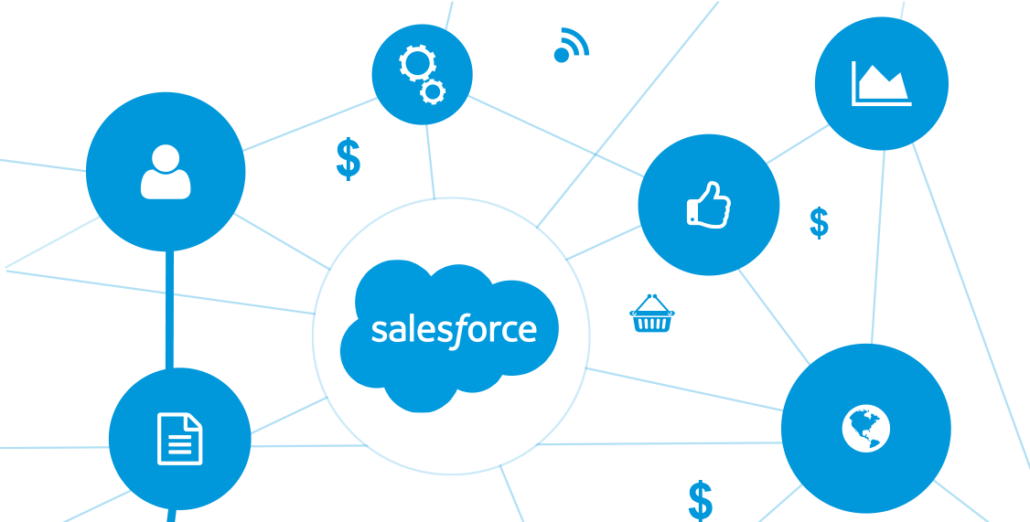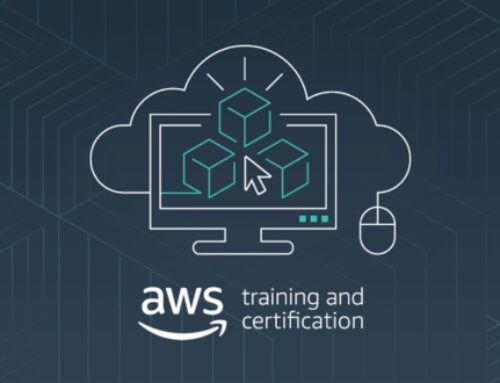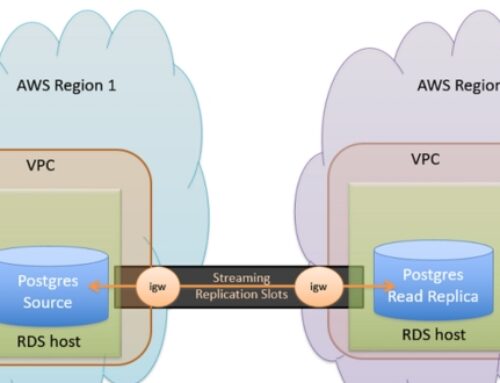Introduction:
Salesforce CRM, or Customer Relationship Management, is a cloud-based platform that helps businesses manage and streamline their customer interactions, sales processes, and overall organizational activities. It is designed to enhance customer satisfaction, improve sales efficiency, and drive overall business growth. Salesforce CRM provides a centralized and integrated system for managing customer data, sales leads, marketing campaigns, and customer support.
Definition of Salesforce CRM:
Salesforce CRM is a comprehensive software solution that enables businesses to store and manage customer information, track sales leads, automate marketing processes, and provide effective customer support. It offers a unified platform that brings together various aspects of customer interactions, helping organizations build stronger and more meaningful relationships with their customers. Salesforce CRM is known for its scalability, flexibility, and accessibility, as it operates entirely in the cloud.
Importance of Salesforce CRM in Business Operations:
- Enhanced Customer Relationships: Salesforce CRM allows businesses to understand their customers better by centralizing customer information. This leads to improved communication and personalized interactions, fostering stronger and more meaningful relationships.
- Streamlined Sales Processes: With features like lead tracking, opportunity management, and sales forecasting, Salesforce CRM streamlines sales processes, making it easier for sales teams to manage leads, convert prospects into customers, and close deals.
- Efficient Marketing Campaigns: The platform enables businesses to create targeted and personalized marketing campaigns. By analyzing customer data, organizations can tailor their marketing efforts to specific segments, increasing the effectiveness of their campaigns.
- Data-driven Decision Making: Salesforce CRM provides valuable insights through analytics and reporting tools. Businesses can make informed decisions based on real-time data, allowing them to adapt and respond quickly to market changes and customer needs.
- Improved Collaboration: Salesforce CRM promotes collaboration among different departments within an organization. Teams can share information, collaborate on projects, and work towards common goals, leading to increased efficiency and productivity.
The Need for Proper Training and Support:
While Salesforce CRM offers a powerful set of tools and features, its optimal utilization requires proper training and ongoing support. Here’s why:
- Maximizing Investment: To ensure that businesses get the most out of their investment in Salesforce CRM, employees need adequate training to understand the platform’s capabilities and functionalities.
- User Adoption: Proper training helps in user adoption, ensuring that employees are comfortable using the CRM system. This leads to higher productivity and better utilization of the platform’s features.
- Customization and Configuration: Salesforce CRM can be highly customizable to meet specific business needs. Training ensures that administrators can configure and customize the system according to the organization’s requirements.
- Efficient Troubleshooting: Ongoing support is crucial for resolving any issues or challenges that may arise during the use of Salesforce CRM. Quick and efficient troubleshooting helps minimize downtime and ensures continuous operations.

Understanding Salesforce CRM
Salesforce CRM is a powerful tool that can significantly impact business operations, from customer relationship management to sales and marketing. Proper training and support are essential to harness its full potential and drive success in today’s competitive business landscape.
Overview of Salesforce CRM Features and Capabilities:
- Customer Management: Salesforce allows businesses to centralize customer information, interactions, and history in one place, providing a 360-degree view of each customer.
- Sales Automation: Salesforce’s Sales Cloud empowers sales teams with tools for lead management, opportunity tracking, and sales forecasting, making the sales process more efficient.
- Service Management: The Service Cloud module enables organizations to deliver exceptional customer service by providing tools for case management, knowledge base, and customer support automation.
- Marketing Automation: Salesforce’s Marketing Cloud facilitates targeted and personalized marketing campaigns, with features for email marketing, social media integration, and analytics.
Cloud-Based Architecture:
- Salesforce operates on a cloud-based architecture, meaning that users can access the platform and its features through a web browser without the need for on-premises hardware or software installations.
- The cloud-based approach ensures real-time collaboration, easy accessibility, and automatic updates, reducing the burden on IT infrastructure.
Sales Cloud, Service Cloud, Marketing Cloud:
- Sales Cloud: Designed for sales teams, it helps manage leads, opportunities, and accounts efficiently. It includes features like contact management, opportunity tracking, and sales analytics.
- Service Cloud: Tailored for customer service and support, it offers tools for case management, knowledge base, and customer self-service, enhancing overall customer satisfaction.
- Marketing Cloud: Focused on marketing automation, it enables businesses to create targeted campaigns, manage customer journeys, and analyze marketing performance across various channels.
Integration with Third-Party Applications:
- Salesforce provides robust APIs (Application Programming Interfaces) that allow seamless integration with third-party applications. This ensures that organizations can connect Salesforce with other tools they use for finance, HR, communication, or any specific business process.
- Integration enhances data consistency and provides a unified view of information across different platforms.
Customization and Scalability:
Salesforce is highly customizable, allowing businesses to tailor the platform to their specific needs. Customization options include creating custom fields, objects, workflows, and even developing custom applications.
The platform is scalable, accommodating the growth of businesses. As organizations expand, Salesforce can adapt to increased data volumes, user numbers, and evolving business processes.
Salesforce CRM offers a comprehensive suite of tools that cover the entire customer lifecycle, from lead generation to customer support. Its cloud-based architecture, modular approach (Sales Cloud, Service Cloud, Marketing Cloud), seamless integration capabilities, and flexibility for customization make it a popular choice for businesses of all sizes.
Why Salesforce CRM Training is Crucial
Improved User Adoption and Efficiency:
User Empowerment: Proper training ensures that users are familiar with the Salesforce CRM interface, tools, and functionalities. This familiarity empowers them to navigate the system confidently and use its features effectively.
Reduced Learning Curve: Training reduces the time it takes for users to become proficient with the platform. A shorter learning curve means faster onboarding for new users and increased productivity for existing ones.
Maximizing the Potential of Salesforce Features:
Feature Utilization: Salesforce CRM is a robust platform with a wide array of features designed to streamline various business processes. Training helps users understand how to leverage these features to their full potential, enhancing the overall efficiency of the organization.
Customization Skills: Training allows users to understand how to customize Salesforce according to the unique needs of their organization, ensuring they can tailor the CRM to align with specific business processes.
Ensuring Data Accuracy and Security:
Best Practices: Training programs emphasize best practices for data entry, management, and security within the Salesforce CRM. This reduces the likelihood of errors, data inconsistencies, and security breaches.
Compliance: Users are educated on data privacy regulations and compliance requirements, ensuring that the organization adheres to industry standards and legal obligations.
Keeping Up with Updates and New Features:
Continuous Learning: Salesforce regularly releases updates and introduces new features to stay ahead in the rapidly evolving tech landscape. Training programs keep users informed about these updates, ensuring they are aware of and proficient in using the latest tools and functionalities.
Optimizing Workflows: Training enables users to incorporate new features into their workflows, allowing the organization to stay competitive and take advantage of the latest innovations in CRM technology.
Salesforce CRM training is a key investment for organizations looking to maximize the benefits of the platform. It not only ensures that users are proficient in using the CRM but also helps organizations adapt to changes, maintain data integrity, and continuously improve their business processes.
Types of Salesforce CRM Training Programs
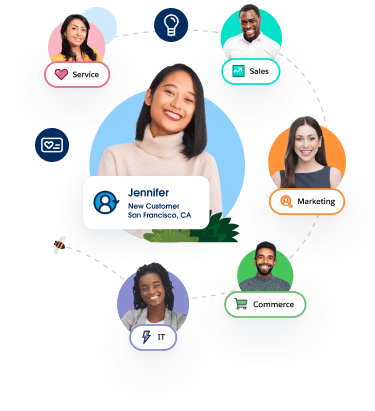
Online Training Courses:
- Online training courses are web-based programs that allow users to learn Salesforce CRM at their own pace, from the convenience of their location.
- Content: These courses typically include a combination of video tutorials, interactive modules, quizzes, and other multimedia resources. The content is structured to cover various aspects of Salesforce, from basic functionalities to advanced features.
- Flexibility: Online training provides flexibility in terms of scheduling, making it suitable for individuals with diverse time commitments. Learners can access the materials at any time, allowing them to balance their professional and personal responsibilities.
Instructor-Led Training Sessions:
- Instructor-led training involves live sessions led by experienced trainers. These sessions can be conducted in-person or virtually through webinars or video conferencing platforms.
- Interactive Learning: Participants can interact with the instructor in real-time, ask questions, and engage in discussions. This form of training is beneficial for those who prefer a more structured and interactive learning experience.
- Hands-On Practice: Instructors may include hands-on exercises and practical demonstrations during the sessions, providing learners with a chance to apply their knowledge in real-world scenarios.
Trailhead: Salesforce’s Interactive Learning Platform:
- Trailhead is Salesforce’s official online learning platform, offering a wide range of interactive and gamified modules for learning Salesforce CRM.
- Gamification: Trailhead uses a gamified approach to make learning more engaging. Users earn badges and points as they complete modules, creating a sense of achievement and progression.
- Diverse Content: Trailhead covers various topics, from the basics of Salesforce to specialized modules for different roles and industries. It is suitable for beginners and advanced users alike.
Certification Programs and Their Significance:
- Salesforce offers a comprehensive certification program with multiple levels, such as Administrator, Developer, Architect, and more. Each level corresponds to a specific set of skills and expertise.
- Professional Validation: Salesforce certifications are widely recognized in the industry and serve as a valuable credential for professionals. They validate the individual’s proficiency in using Salesforce tools and technologies.
- Career Advancement: Achieving Salesforce certification can enhance career prospects, as it demonstrates a commitment to continuous learning and expertise in utilizing Salesforce CRM. Many employers value certified professionals when hiring or promoting within their organizations.
Salesforce CRM training programs encompass diverse formats, ensuring that individuals with different learning preferences and schedules can find a suitable option to enhance their skills and proficiency in using Salesforce. The availability of certification programs adds a layer of professional validation and career advancement opportunities for those seeking to excel in the Salesforce ecosystem.
Key Components of Salesforce CRM Training
User Training for Beginners:
This component focuses on introducing new users to the basic functionalities of Salesforce CRM. Beginners will learn how to navigate the platform, manage their profiles, and understand the fundamental features relevant to their roles. Training may cover tasks such as creating and updating records, using dashboards, and collaborating within the platform.
Advanced Training for Administrators and Developers:
For administrators and developers, advanced training is crucial. This includes in-depth sessions on configuring and customizing Salesforce to meet the specific needs of the organization. Administrators may learn about user management, security settings, and workflow automation. Developers, on the other hand, might explore customization through Apex coding, Lightning components, and integration with other systems.
Specialized Training for Sales, Marketing, and Customer Service Teams:
Each functional area within an organization requires specific knowledge to maximize the benefits of Salesforce CRM. Sales teams may receive training on lead and opportunity management, forecasting, and pipeline tracking. Marketing teams might focus on campaign management, lead nurturing, and analytics. Customer service teams may learn about case management, knowledge base utilization, and customer communication tools.
Continuous Learning and Skill Enhancement:
Salesforce CRM is an evolving platform, and users should continually update their skills to leverage new features and improvements. Continuous learning involves staying informed about updates and enhancements, as well as participating in ongoing training programs. This component emphasizes the importance of staying up-to-date with best practices, industry trends, and Salesforce releases.
Creating a Customized Training Plan
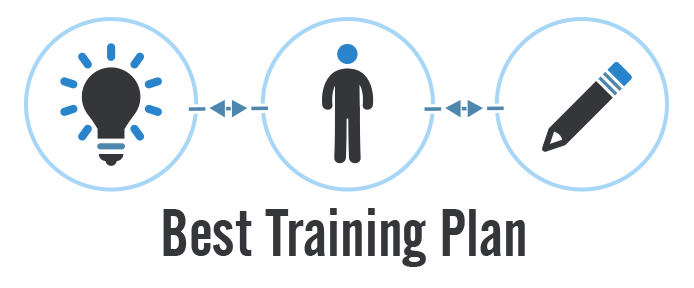
Assessing the Specific Needs of Your Organization:
- Conducting a thorough assessment involves identifying the skills, knowledge, and competencies required for various roles within the organization.
- Analyzing current skill gaps and performance issues can help pinpoint areas that need improvement.
- Consideration of organizational goals and industry trends is crucial to ensure that the training plan aligns with broader objectives.
Tailoring Training Programs Based on Roles and Responsibilities:
- Recognizing that different roles within the organization may require distinct skill sets is key. Tailoring training programs to address these specific needs ensures relevance and effectiveness.
- Understanding the varying levels of expertise among employees and customizing the training content accordingly helps in engaging participants at their respective skill levels.
Incorporating job-related scenarios and examples into the training materials makes the content more relatable and applicable to daily tasks.
Utilizing Real-Life Scenarios for Effective Learning:
- Real-life scenarios provide a practical and hands-on approach to learning. They simulate actual workplace situations, allowing participants to apply theoretical knowledge in a realistic context.
- Case studies, simulations, and role-playing exercises can enhance the learning experience by encouraging problem-solving and critical thinking.
- Exposure to real-world challenges helps employees gain confidence in their abilities and prepares them for the complexities of their roles.
Incorporating Feedback for Continuous Improvement:
- Regular feedback mechanisms, such as surveys, assessments, and discussions, are essential for gauging the effectiveness of the training programs.
- Feedback from participants and supervisors helps identify areas of improvement and ensures that the training content remains relevant and up-to-date.
- Continuous improvement involves refining training methods, updating content based on emerging trends, and adapting to the evolving needs of the organization.
Salesforce CRM Support
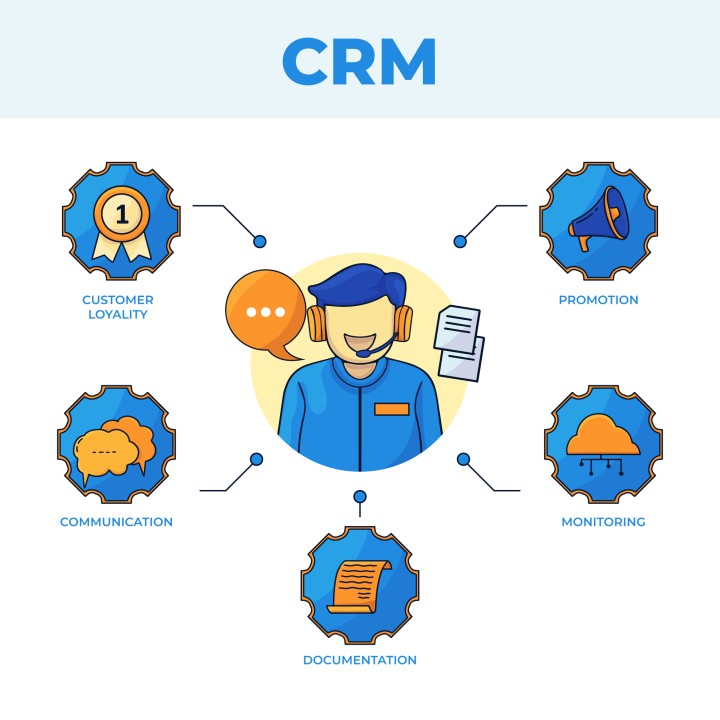
Salesforce CRM support refers to the assistance and guidance provided to users of the Salesforce platform, which is a widely used cloud-based CRM solution.
The Role of Support in Ensuring System Stability:
- Support plays a key role in maintaining the stability of the Salesforce CRM system. This involves addressing user queries, troubleshooting issues, and ensuring that the platform functions smoothly.
- System stability is vital for businesses as it directly impacts productivity, data accuracy, and overall efficiency.
Different Channels for Salesforce Support:
- Salesforce support is typically offered through various channels to cater to different user preferences and urgency levels. This might include email support, phone support, live chat, and self-service options through knowledge bases or forums.
- Exploring these channels allows users to choose the most convenient and efficient method for seeking assistance.
Understanding Service Level Agreements (SLAs):
- SLAs are agreements that define the level of support a user can expect, including response times, issue resolution timelines, and overall service quality.
- Understanding SLAs is crucial for users to have clear expectations regarding the support they will receive, helping them plan and manage their activities effectively.
Proactive Monitoring and Issue Resolution:
- Proactive monitoring involves actively keeping an eye on the Salesforce CRM system to identify potential issues before they become major problems.
- Issue resolution involves addressing problems promptly, minimizing downtime, and ensuring a seamless user experience.
Salesforce CRM support is an indispensable component for users, ensuring the stability of the system through various support channels, adherence to SLAs, and a proactive approach to monitoring and issue resolution.
Best Practices for Salesforce CRM Training
Establishing a Dedicated Training Team:
- Roles and Responsibilities: Designate individuals or a team specifically responsible for training initiatives. This team should be well-versed in Salesforce functionality and capable of effectively communicating and teaching others.
- Expertise Development: Continuously invest in the development of the training team’s expertise. Ensure they stay updated with the latest features and updates within the Salesforce platform.
Providing Ongoing Support Post-Implementation:
- Help Desk or Support System: Implement a help desk or support system to assist users with any issues or questions that arise after the initial training. This ensures that users have a resource to turn to when they encounter challenges in real-world scenarios.
- User Forums and Communities: Foster a community where users can share experiences, tips, and best practices. This encourages collaboration and provides an additional layer of support beyond formal channels.
Encouraging a Culture of Continuous Learning:
- Training Modules and Resources: Develop a repository of training modules and resources that users can access at their convenience. This can include video tutorials, documentation, and interactive learning materials to support ongoing learning.
- Regular Refresher Courses: Schedule periodic refresher courses to reinforce key concepts and introduce users to any new features or updates. This helps maintain a high level of proficiency among users.
Monitoring and Measuring the Effectiveness of Training Programs:
- Feedback Mechanisms: Implement mechanisms for users to provide feedback on the training programs. This could include surveys, focus groups, or direct feedback sessions. Use this input to continuously improve the training content and delivery methods.
- Performance Metrics: Establish key performance indicators (KPIs) to measure the effectiveness of the training programs. Monitor metrics such as user adoption rates, proficiency levels, and the impact on business processes. Adjust training strategies based on the data collected.
Challenges in Salesforce CRM Training and Support

Overcoming Resistance to Change:
- Employee Mindset: One of the primary challenges is convincing employees to embrace the new Salesforce CRM system. Resistance may stem from a fear of the unknown, apprehension about learning new tools, or concerns about job security.
- Communication and Change Management: Effective communication strategies and change management practices are crucial. Organizations need to clearly communicate the benefits of Salesforce CRM, address concerns, and involve employees in the transition process to make them feel more invested in the change.
Adapting to Frequent Updates and New Features:
- Continuous Learning: Salesforce CRM regularly introduces updates and new features to enhance functionality and security. Keeping the workforce updated with these changes requires a commitment to continuous learning.
- Training Programs: Implementing regular training programs that focus on the latest updates and features helps users stay current. This ensures that employees can leverage the full potential of the CRM system, improving overall efficiency and productivity.
Ensuring Consistency in Training Across Diverse Teams:
- Diverse Skill Levels: Teams within an organization may have varying levels of technical expertise. Providing consistent training across diverse teams becomes challenging as the training material must cater to both beginners and advanced users.
- Customized Training Paths: Developing customized training paths based on the roles and skill levels of users is essential. This ensures that each team member receives training that is relevant to their job responsibilities and technical proficiency.
Addressing Issues Related to Data Migration and Integration:
- Data Quality and Integrity: Migrating data to Salesforce CRM requires careful planning to ensure data quality and integrity are maintained. Inaccurate or incomplete data can lead to operational inefficiencies and decision-making errors.
- Integration Challenges: Integrating Salesforce CRM with other systems poses technical challenges. Ensuring seamless data flow between different platforms, maintaining data consistency, and avoiding data silos require expertise in both Salesforce and the systems being integrated.
- Data Security: Handling sensitive information during data migration and integration requires robust security measures to safeguard against potential breaches.
Salesforce offers various training options, including online courses, instructor-led classes, virtual sessions, and self-paced learning modules. Training covers different roles, such as administrators, developers, and end-users.
The duration varies based on the type of training and the individual’s prior experience. Basic user training may take a few hours, while more advanced roles like administrators or developers may require several weeks of training.
Yes, Salesforce offers a range of certifications for different roles, including Administrator, Developer, Consultant, and more. Certification validates a person’s expertise in specific Salesforce skills.
Salesforce provides various support options, including online resources, community forums, and customer support. Organizations can also opt for premium support plans for faster assistance.
Yes, organizations can customize Salesforce training programs to align with their specific business processes and objectives. This ensures that users are trained on features relevant to their roles and responsibilities.


